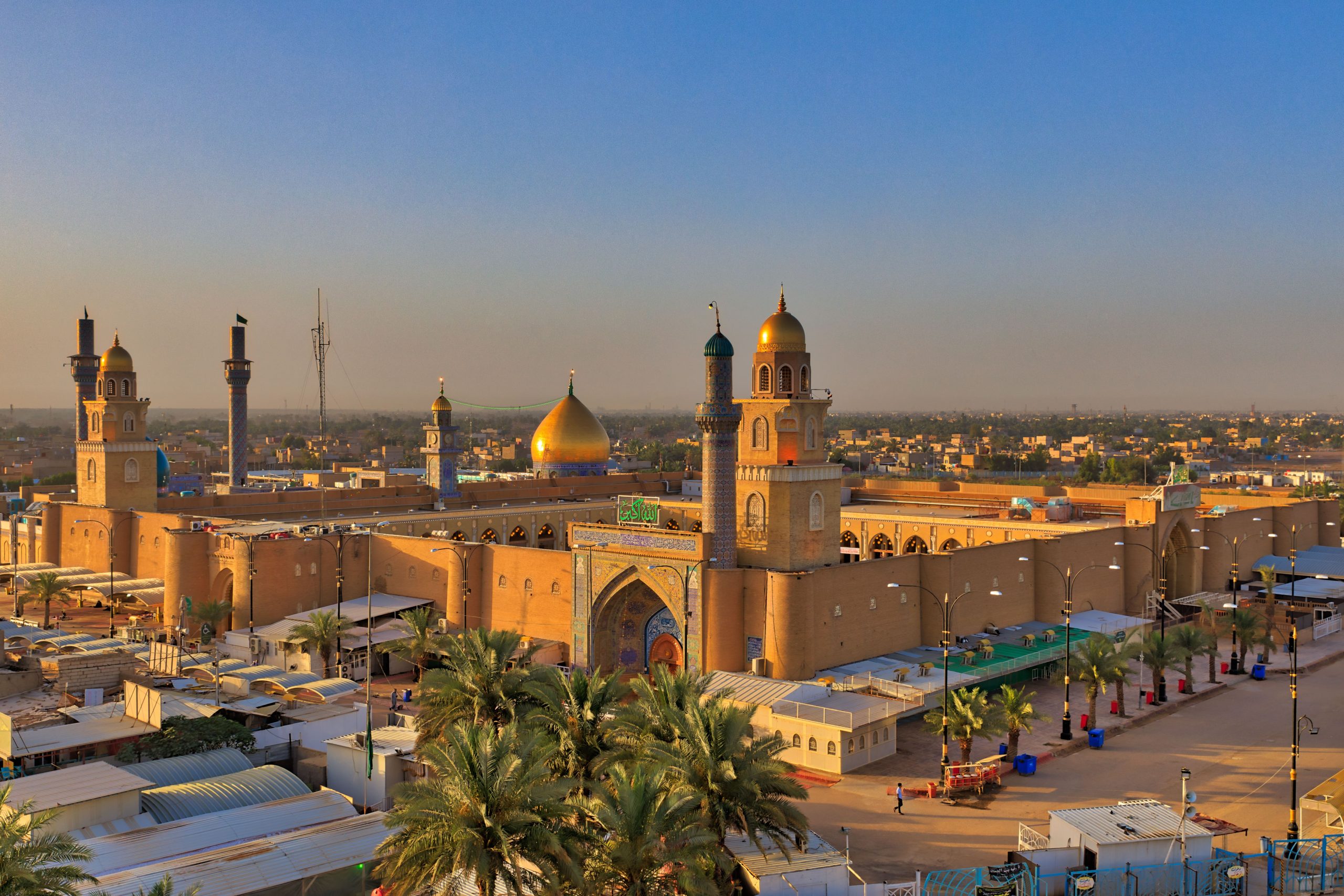Iraq Plans Push on Solar and Green Hydrogen Projects

Iraq is planning to build solar plants and its first green hydrogen project as part of a strategy to tackle power shortages and reduce its carbon footprint.
The country’s cabinet has approved a proposal to install 12 gigawatts (GW) of solar power by 2030, said a National Investment Commission representative, Rahim Al Jaafari.
Projects capable of generating 7.5GW have already been awarded, Jaafari told Iraq News Agency. Hayan Abdel Ghani, Iraq’s oil minister, unveiled plans for a green hydrogen project for the South Refineries Company, including a 130MW solar energy plant.
It would provide Iraq with 800 tonnes of green hydrogen a year through solar-powered electrolysis
Iraq, Opec’s second-largest crude oil producer after Saudi Arabia, aims to generate around 10 GW of green power by 2025. This would amount to a third of its electricity mix.
France’s TotalEnergies and PowerChina signed deals last year to build two solar power plants with a capacity of 1 GW and 750 W respectively, in Babylon and Karbala.
Abu Dhabi’s renewable energy company, Masdar, has also been planning at least four solar plants in Iraq since 2022. The first phase would allow a capacity of 1 GW. However, construction has not yet started.
Iraq, which has a population of 43 million, is sitting on 17 percent of the Middle East’s proven oil reserves and generates 80 percent of its power using fossil fuels.
The country is lagging behind its neighbors on renewable energy goals. Baghdad has not yet set a net zero target, while the UAE has adopted a deadline of 2050 and Saudi Arabia of 2060.
Iraq’s renewable projects face financial, regulatory and technological challenges, according to industry experts. In addition, the country’s infrastructure is old and damaged by years of war.
Ghani said the government had drafted a renewable energy law to address those challenges.
It would establish an administrative body with the power to write legislation to tackle the issues.
Iraq also plans to cut its methane emissions by 30 percent by 2030.
In addition, the government has put out the first tender to build a carbon conservation project to reduce gas flaring in Baghdad’s eastern field. Ghani said it would have a capacity of 12 million cubic feet.
Iraq’s Central Bank allocated $750 million in 2022 in almost zero-interest loans for individuals and private companies adopting solar power, to encourage green electricity projects.
The Iraqi Minister of Oil, Hayan Abdul-Ghani, announced plans to establish a green hydrogen project for the South Refineries Company, alongside a solar energy plant.
Revealed during the ninth Iraq International Energy Exhibition and Conference (IEE), these initiatives underscore Iraq’s commitment to diversifying its energy portfolio and reducing its carbon footprint.
The proposed green hydrogen project aims to produce 800 tons annually, leveraging solar energy for electrolysis—a process that splits water molecules into hydrogen and oxygen. By harnessing renewable energy sources like solar and wind power, Iraq seeks to capitalize on its abundant natural resources to drive sustainable development.
Abdul-Ghani highlighted the government’s proactive steps in launching the first tender for carbon conservation projects, targeting the reduction of gas flaring in Baghdad’s eastern field—a critical endeavor in mitigating environmental pollution and maximizing energy efficiency.
Iraq is poised to enact legislation to facilitate the transition towards renewable energy
This comes through a draft law focused on establishing an administrative body dedicated to overseeing renewable energy initiatives. This regulatory framework is expected to streamline operations and accelerate the adoption of clean energy technologies across the country.
Iraq’s vast solar energy potential, coupled with its windy regions, presents favorable conditions for the development of wind energy projects. These renewable energy sources hold the key to unlocking Iraq’s green hydrogen production capacity, paving the way for a more sustainable energy future.
As Iraq endeavors to reduce its reliance on fossil fuels and embrace renewable energy alternatives, the establishment of green hydrogen projects signifies a paradigm shift towards environmental stewardship and energy independence. By harnessing the power of green hydrogen, Iraq can position itself as a regional leader in sustainable energy innovation, driving economic growth and environmental conservation in the process.
However, challenges such as infrastructure development, technology implementation, and regulatory frameworks must be addressed to realize the full potential of Iraq’s renewable energy ambitions. Nonetheless, with strategic planning, international collaboration, and concerted efforts, Iraq’s journey towards a low-carbon economy powered by green hydrogen holds immense promise for the nation’s sustainable development trajectory.

